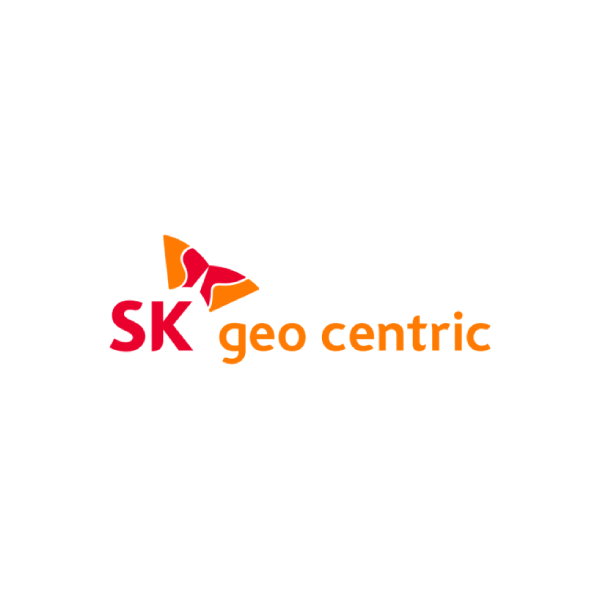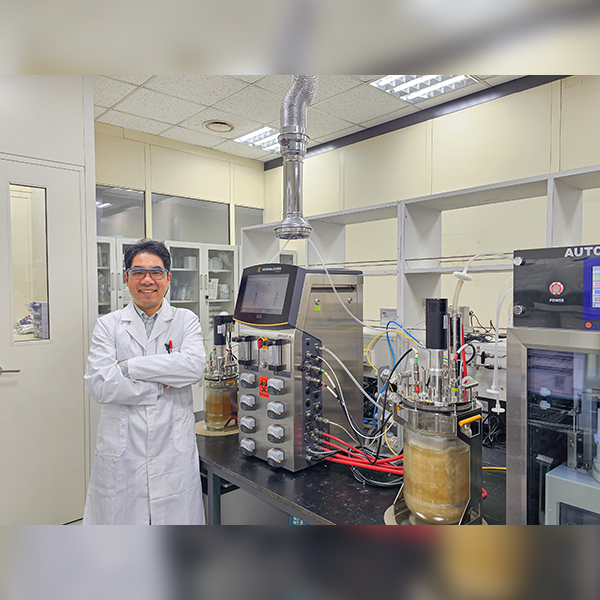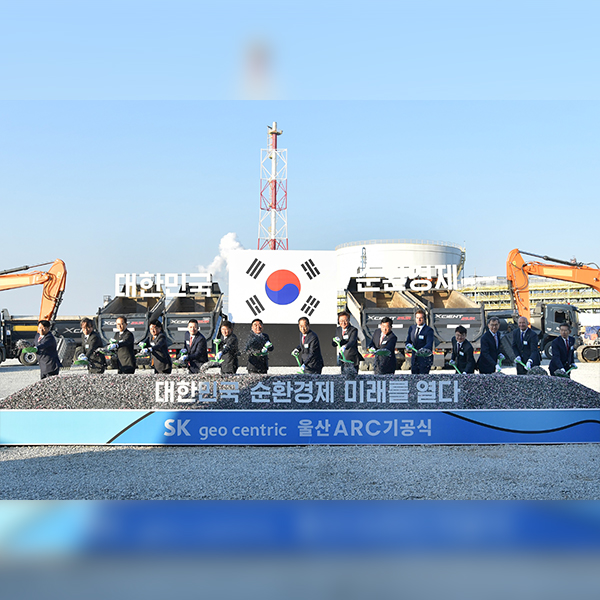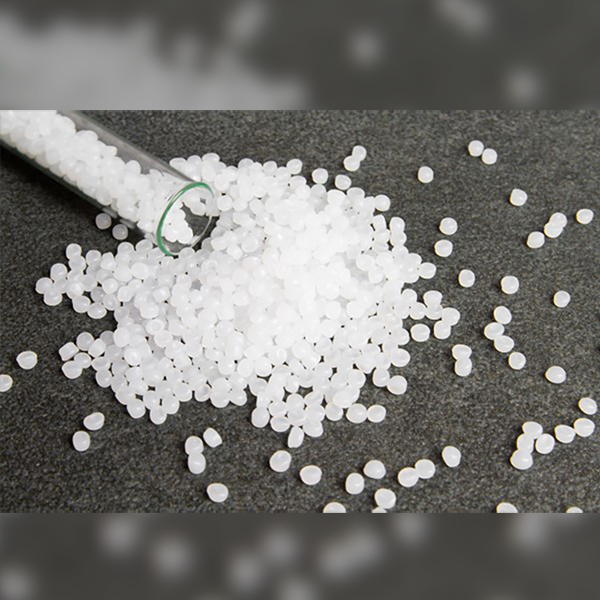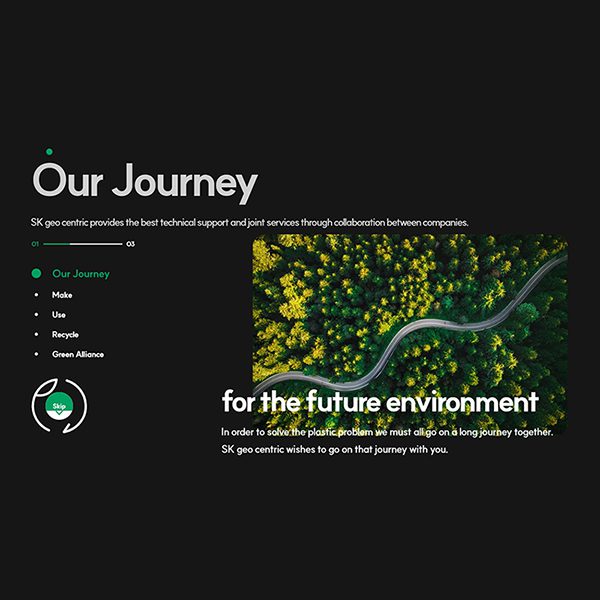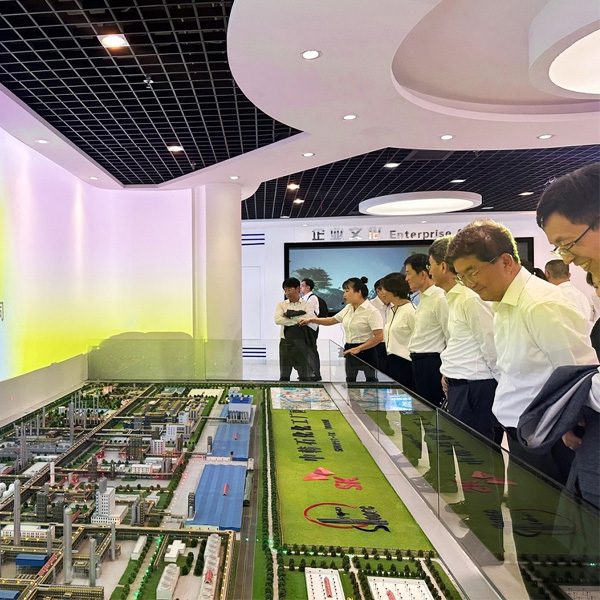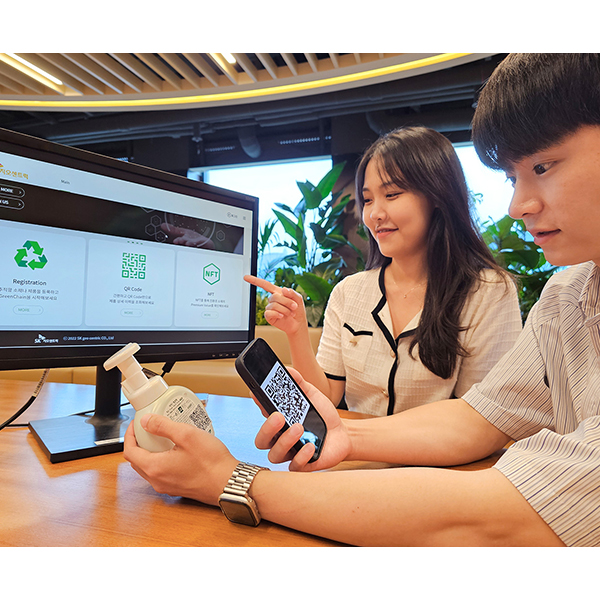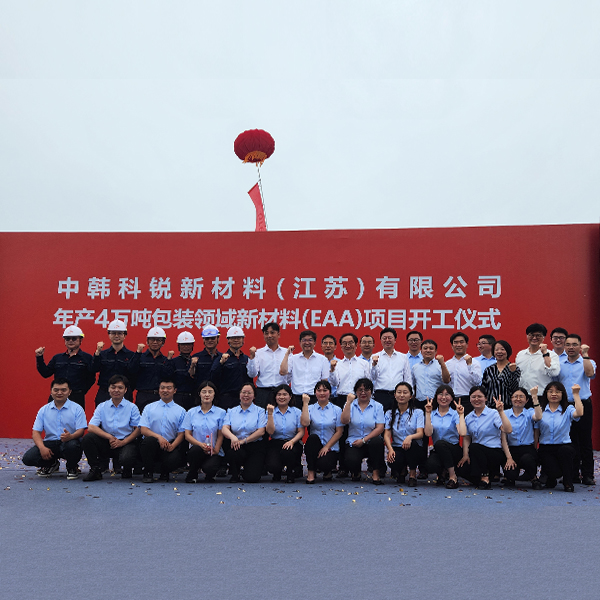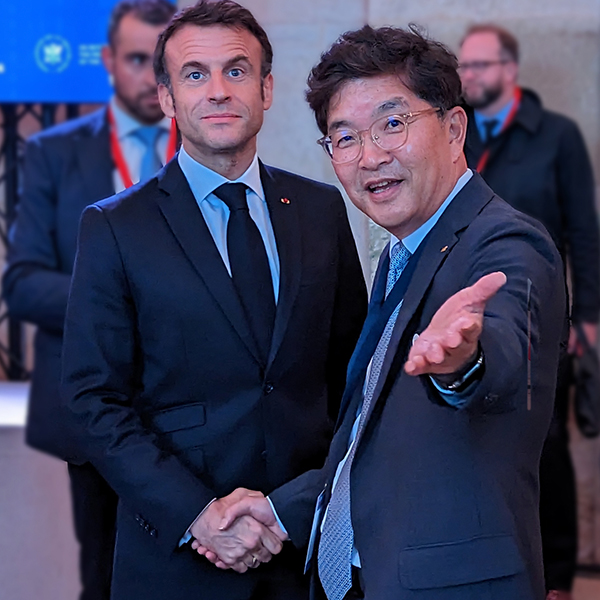 SK Geo Centric
SK Geo CentricA joint private–public–academic response to solve the environmental issues of waste plastic in the packaging industry
■ A forum for environmentally friendly plastic packagings to solve the transnational problem of waste plastics
– A common understanding of the need to establish a joint response within the value chains in the packaging industry—170 participants from 60 companies
– Discussing environmentally friendly technology, policies, and methods of building sustainable plastic resource circulation ecosystem
■ CEO Na Kyung-soo of SK Global Chemical: “A significant event in forming a consensus across the private–public–academic actors will continue building new channels to create actual results.”
SK Global Chemical (CEO Na Kyung-soo, www.SKglobalchemical.com) hosted a forum for environmentally friendly plastic packagings in the Grand Walkerhill Seoul on the 1st of November to provide a proactive response to transnational issues of plastic waste and other environmental problems.
This event is considered as robust progress in the environmentalist policy and action for the expansion of the scope of action from individual private actors to private–public–academic cooperation.
This forum was realized by the proposal from the SK Global Chemical, a producer of chemical products, and its recognition that the environmental issues caused by chemical products such as plastic are something, which must be solved by cooperating with stakeholders in the chemical industry’s value chain.
The first itineration of this forum this year was attended by 170 guests from 60 government organizations, companies, and academic societies with a common understanding of the need for environmentally friendly packaging. Some of the companies that took part in this event include the SK Global Chemical and other SK affiliates, such as SKC and SK Chemicals, producers of packaging and other final products, and companies specializing in materials, as well as members of academia, such as the Korea Society for Packaging Science & Technology, government organizations such as the Ministry of Environment, and social enterprises such as Mongsenu, Marine Innovation, and Usisan.
SK Global Chemical explained its motivation as “A common understanding that for us to reduce the use of plastic materials, improve the recycling ratio of plastic products, and come up with decomposable materials, a joint effort between the private–public–academic actors, involving actions such as corporate R&D and policy, and technology support from the government and the academia, have brought the guests here together.”
This forum introduced new technologies that could help reduce plastic usage and facilitate recycling. Guests were also able to examine the latest technological trends in pyrolysis, gasification, and biodegradation of plastic materials, as well as policy changes and directions in resource circulation.
The forum was followed by panel discussions, where agendas such as corporate role and direction in environmentally sustainable packaging or intra-value chain cooperation methods for joint response in waste plastic were discussed in depth.
Companies that took in this forum adopted a joint declaration for the “Establishment of Plastic Packaging Resource Circulation Ecosystem,” and took the lead in building the private–public–academic cooperation system to solve the issues of waste plastic.
CEO of SK Global Chemical Na Kyung-soo commented, “This forum is a significant event in forming a consensus across the private–public–academic actors to solve the problems of plastic packaging waste. We will continue building new channels to create actual results such as enabling the stakeholders to share information and build further online and off-line cooperation.”
The forum also featured social enterprises such as Usisan, Marine Innovation, and Mongsenu, showcasing their products in exhibition booths, which were received positively by many guests.
[Attachment. Participating Private/Public/Academic Organizations in the Forum]
| Classification | Participating Organizations |
| SK Group’s Chemical Business Affiliates | SK Global Chemical, SKC, SK Chemicals |
| Packaging Companies | Wonji, SPC Pack, Samsung Chemical, Dongsin ENP, Sangjin, Jagang, Clean Wrap, Ilsin Chemical, Seoil, Samdong Industry, Woosung Chemical, Hanil Plastic, Woosung Platech, Gyeongsin, Tap Korea, Dongha, Yeonwoo, Pum-Tech, Yoohanpack, Sinseong Innotech, Samyang Packaging |
| Korean Brands | CJ, Aekyung, Nongshim, AmorePacific, Binggrae, Emart, Ottogi, Market Kurly, Dongwon F&B, Shinsegae Food, Starbucks, Lotte Chilsung Beverage, Korea Ginseng Corp, SPC, etc. |
| Social Ventures and Enterprises | Marine Innovation, Mongsenu, Usisan, etc. |
| Recycling | Jeju Clean Energy (Pyrolysis), CK, Packaging Recycling Cooperative, Terracycle (Upcycling, etc.) |
| Ministry of Environment and Related Organizations | Ministry of Environment Department of Resource Cycling Policy, Cycled Resource Distribution Center |
| Academic and Research Organizations | Korea Society for Packaging Science & Technology, Korea Institute of Industrial Technology Packaging Technology Center, Yonsei University Department of Packaging, Professor Oh Se-cheon of Kongju National University, and Director Hong Soo-yeol of Resource Cycling Social Institute |










 Youtube
Youtube Facebook
Facebook Instagram
Instagram Linkedin
Linkedin








